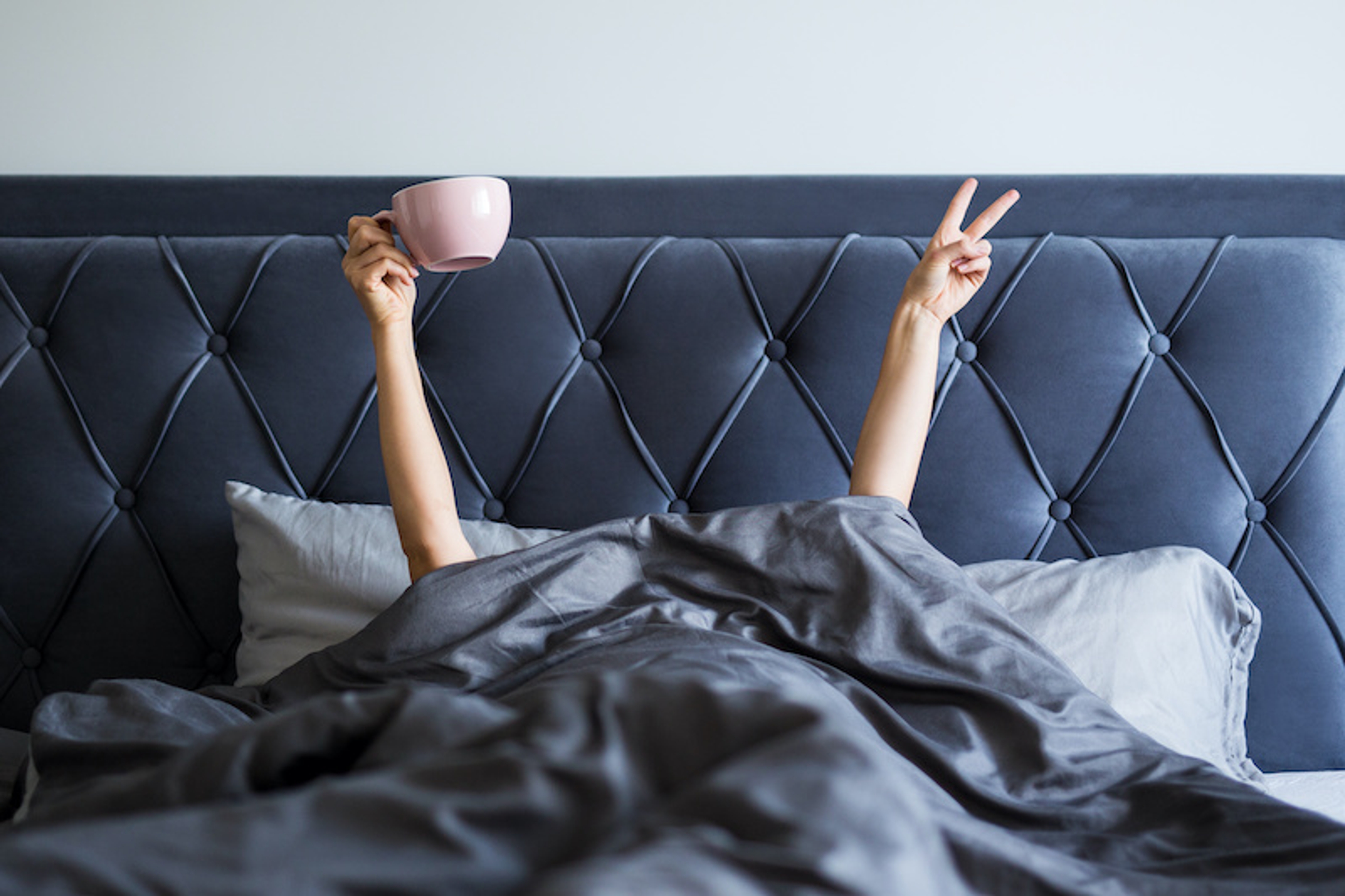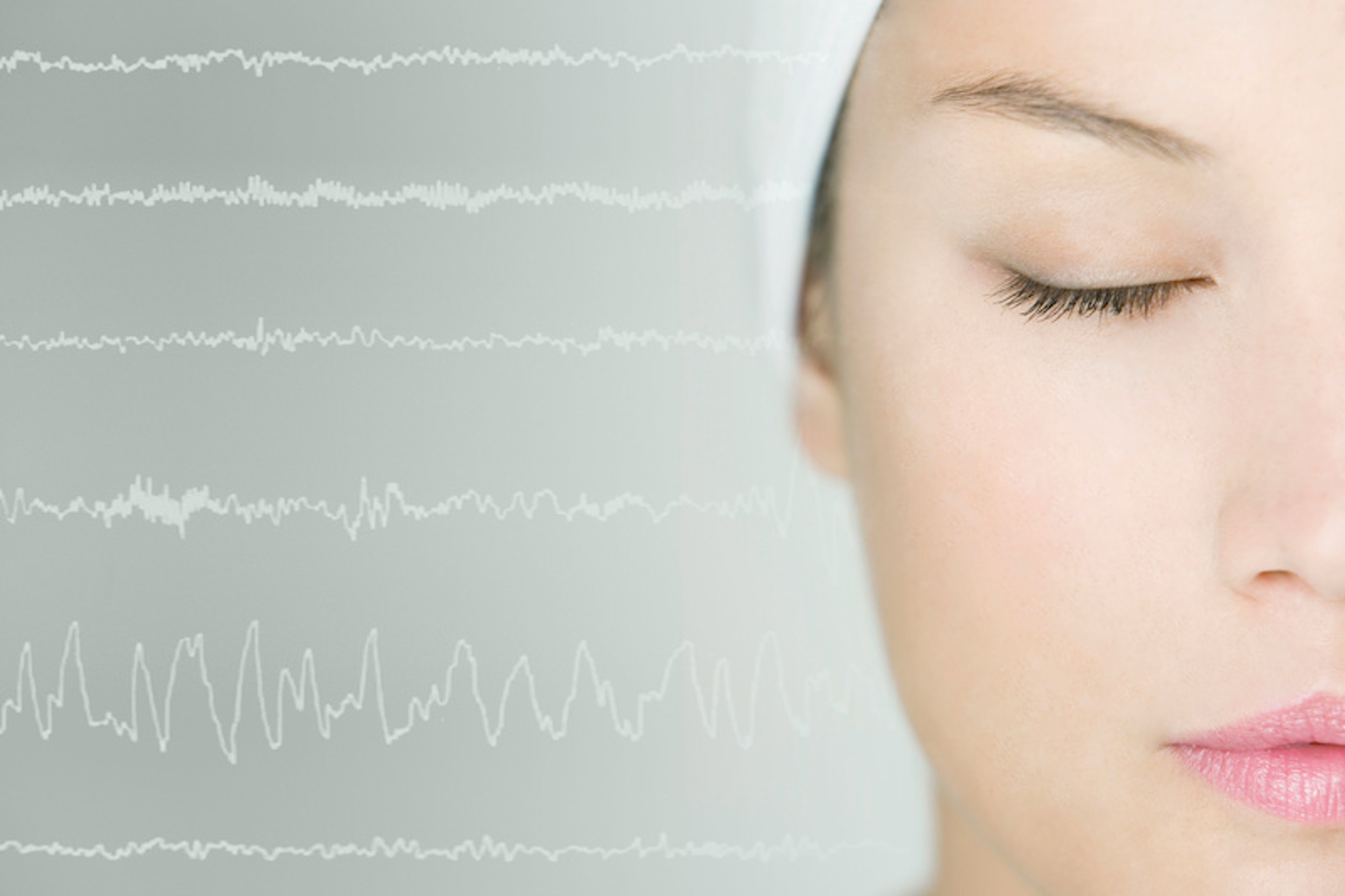Regular bedtimes aren't just for kids. Getting consistent sleep, and enough of it, is something every adult needs, too. Hitting the hay at a reasonable hour can be a challenge for a lot of us, especially when work, kids, and leisure are already playing Hungry-Hungry Hippos with our available time.
But studies show quality sleep is important for both your physical and mental health and impacts everything from our brains to our hearts to our immune systems. And the better you sleep, the more you'll be able to enjoy your waking hours.
So how much sleep do we really need? Experts from the American Academy of Sleep Medicine and the Sleep Research Society agree that adults 18-60 years old need at least seven hours of sleep every night. Six or fewer hours, their research says, just doesn't cut it. That amount will vary from person to person, though. So, if your partner gets by on a scant seven hours while you're sleeping in, don't sweat it.
Still, if you're not sleeping enough, you're not alone. The CDC reports that one in three American adults struggles to get the sleep they need. Here's why those seven or more hours are important, and a few of our favorite tips for getting more shuteye.
What Happens When You Sleep

Humans have been wondering why we sleep for centuries. Today, it's clearer than ever that sleep is a critical part of a person's day, as important as eating or drinking water for maintaining basic bodily functions.
Sleep gives the body a chance to repair itself from the day's activities. Studies have found it's the main time when muscles repair and grow. And it gives your cells a chance to top off components they'll need to keep your body running the next day.
You may just be lying there, but there's a lot going on when you sleep. At various stages of the sleep cycle, your brain waves, heart rate, and breathing all slow down. Your metabolic rate drops, conserving energy. Levels of ghrelin, the “hunger hormone," decrease in the body. (This may explain the paradoxical phenomenon of waking up less hungry than when you went to sleep.)
Your immune system is hard at work too, producing key players like cytokines and antibodies that are critical for fighting off infections.
Sleep isn't just important for resting and restoring your body, it's critical for your brain as well. During sleep, the brain is thought to reorganize itself and recharge, as well as clean out waste that accumulates throughout the day, like Alzheimer's-causing β-amyloids. This “cleaning" happens not just for literal bodily compounds, but also for memories. Scientists say that sleep is when our brains sort through the day's memories and decide which to keep and which to discard, an important aspect of keeping your memory systems working at their best.
The Effects of Missing Sleep
When you're deprived of or deficient in sleep, your body, health, mood, and more can begin to suffer, even if you don't feel “tired." You might feel unfocused, irritable or like you're having trouble remembering things. Your reaction times might be slowed, or you might find yourself nodding off in meetings.

But the ramifications of sleeplessness can go well beyond ruining your day. Chronic sleep deficiencies have been linked to several longer-term health impacts. Not getting enough sleep can make you more likely to gain weight and lose muscle, and it increases your risk for cardiovascular disease. In fact, a 2018 study found that men who slept five hours or less each night had double the risk of cardiovascular disease compared to men who got seven hours or more.
Not enough sleep can also raise your blood pressure and increase your risk of type II diabetes. (It's important to note that in one study, men who slept more than eight hours also had an increased risk of diabetes. So, aim for 7-8 hours!)
Tips for Better Sleep
Don't skimp on getting enough rest every night! Here are a few suggestions for improving your routine so you can get into a healthy and regular sleeping pattern.
- Pick a bedtime and stick to it. Count backward seven hours from the time you normally wake up. Are you usually asleep by then? If not, you might need to work on your bedtime. Think about how much time it takes you to wind down and fall asleep, and make sure you're in bed early enough to make it happen.
- Get cozy. Many people find it easier to sleep in a cool, dark room. Turning down the heat a few extra degrees and investing in blackout curtains (especially if your seven hours don't align with the darkest hours) can help sleep come easier.
- Wear yourself out. Exercising during the day can make for better relaxation and more restful sleep at night. We do it with our dogs, why wouldn't we do it with ourselves?
- Ditch the screens. Scrolling on your phone every night before bed? Don't. The blue-wavelength light plus the game you're playing or the content you're looking at are more likely to wake you up, not put you to sleep. Try reading a book instead, a real one.
- Cut the coffee. If you're having trouble falling asleep at night, you might feel extra tired, and more likely to grab that extra cup of coffee during your mid-afternoon slump. But cutting back on your caffeine consumption, especially later in the afternoon and into the evening, can make it easier to fall asleep. Coffee addicts (like your writer) may need to find a rule that works for them and stick to it, like no caffeine after 2 p.m.
- Eat fish. Research indicates the omega-3 fatty acids in fish and seafood may help in sleep, as they can help in the production of melatonin, a key hormone that helps promote sleep.
Sleep well!







